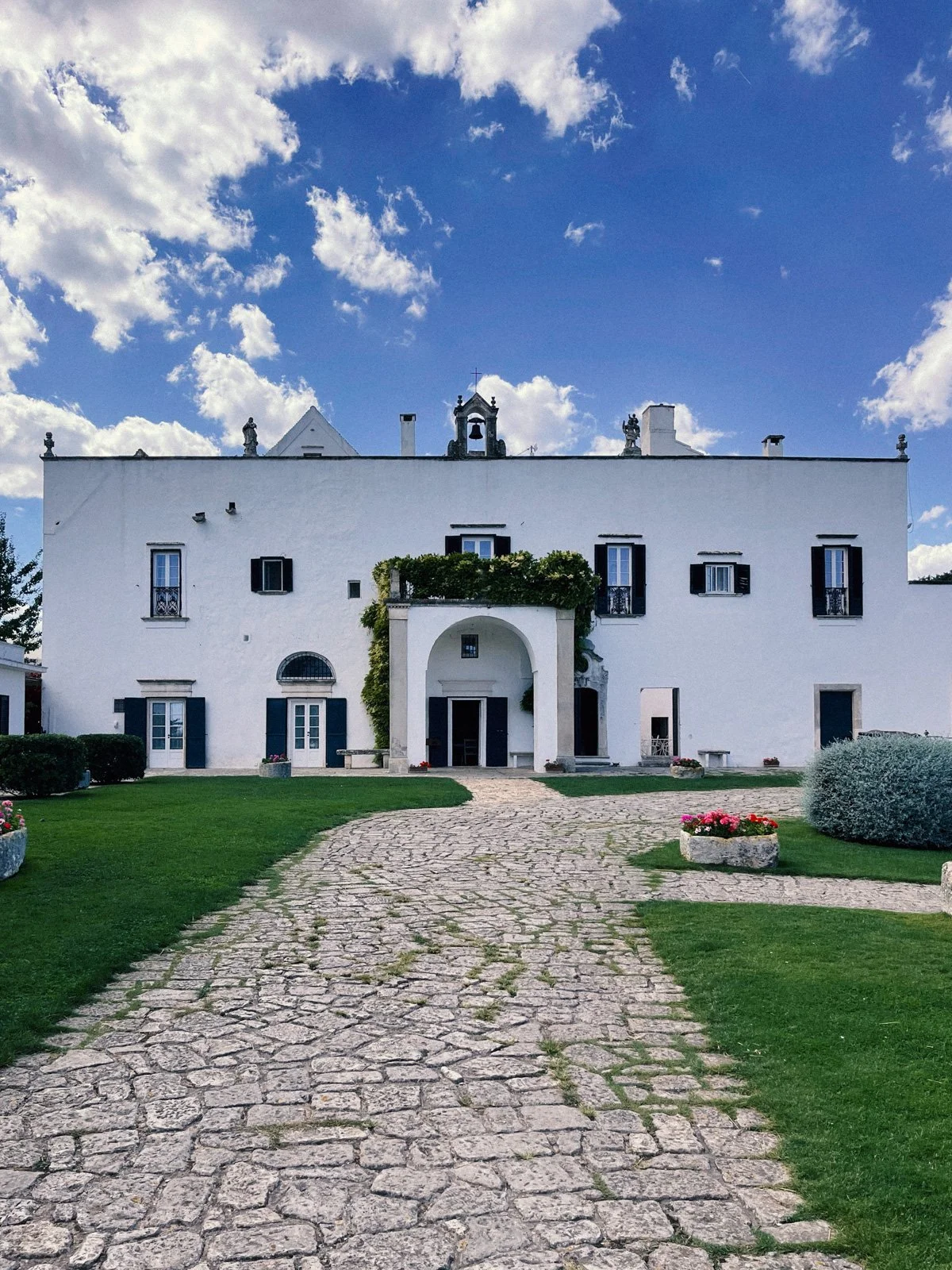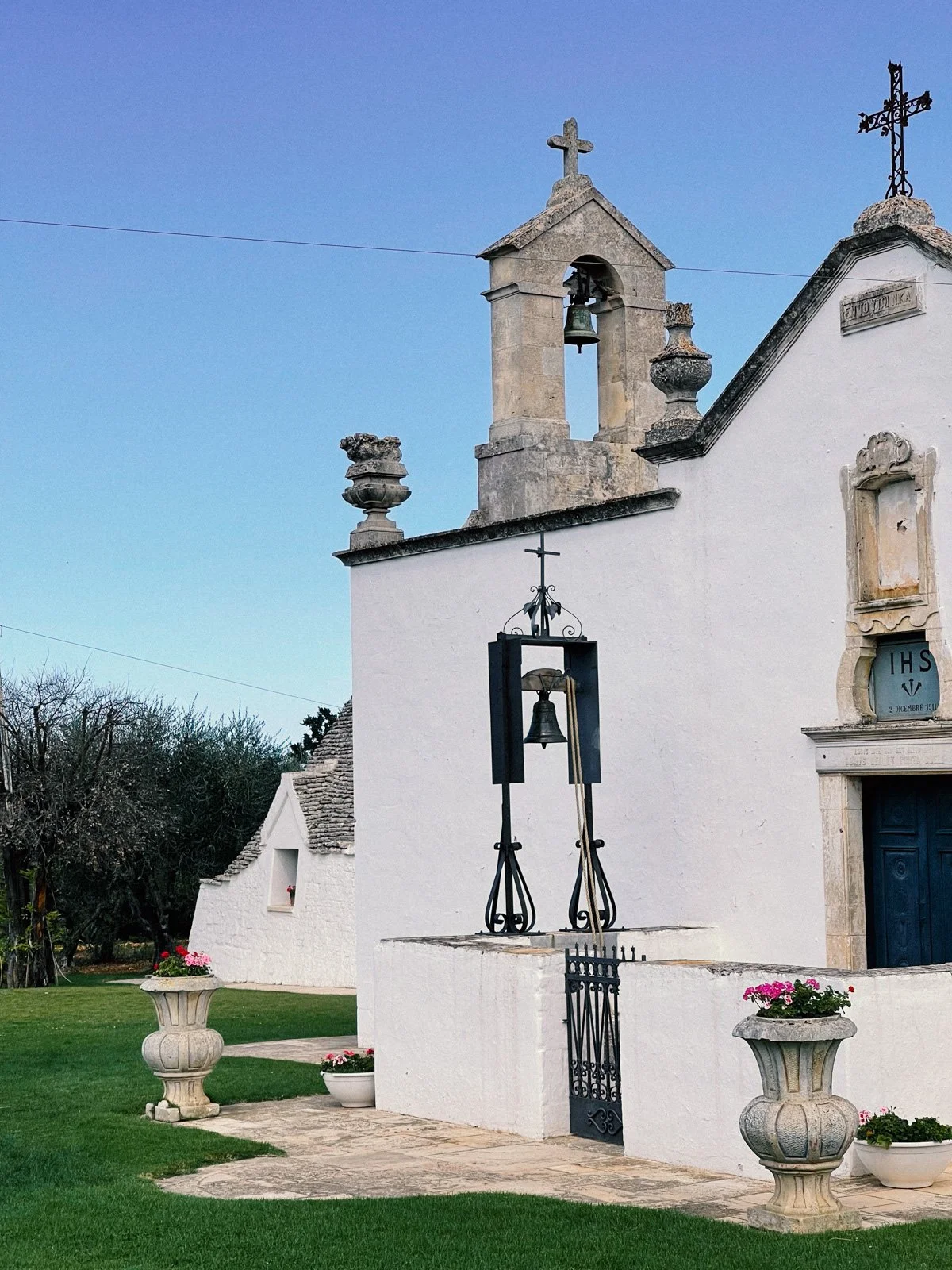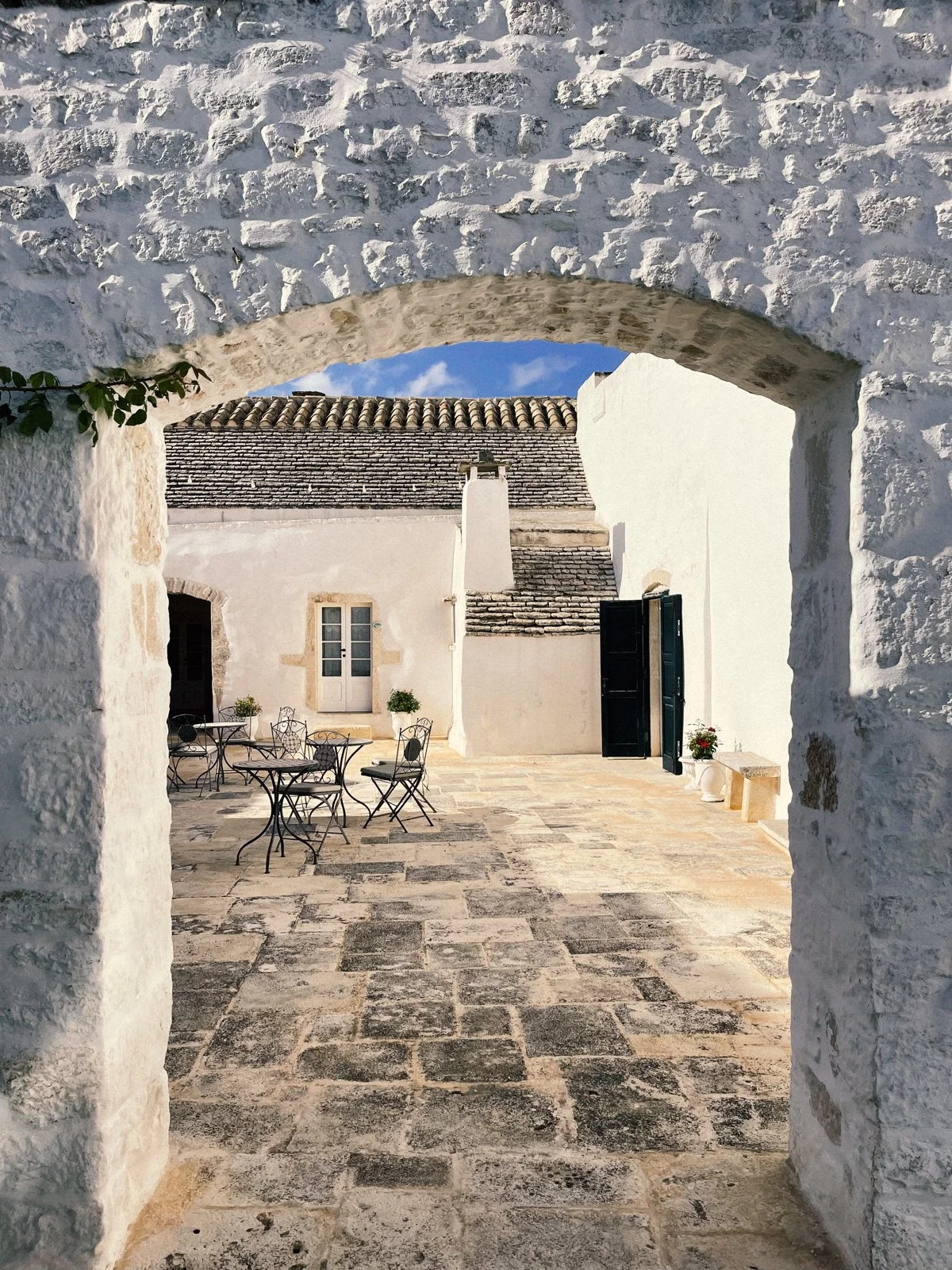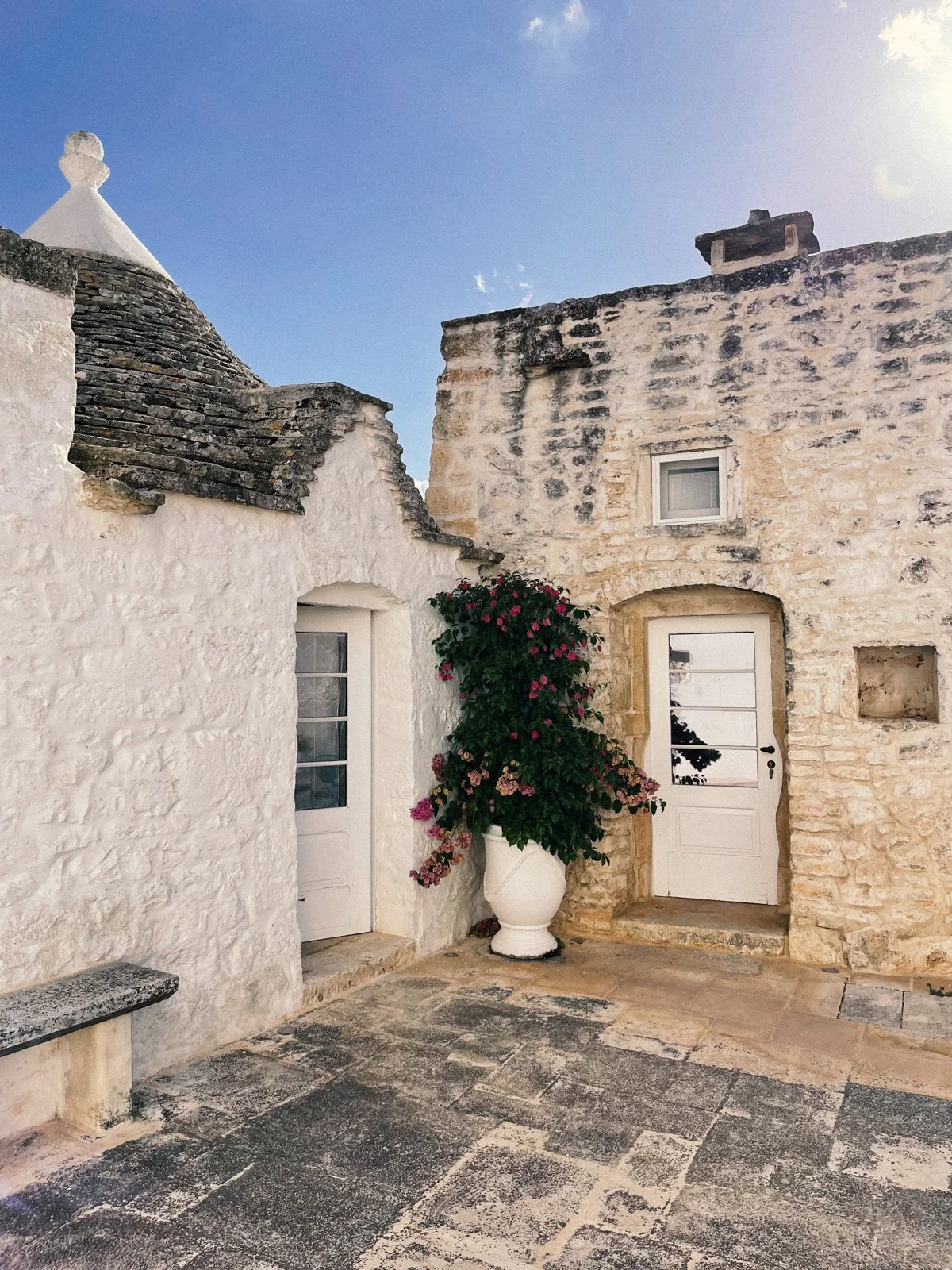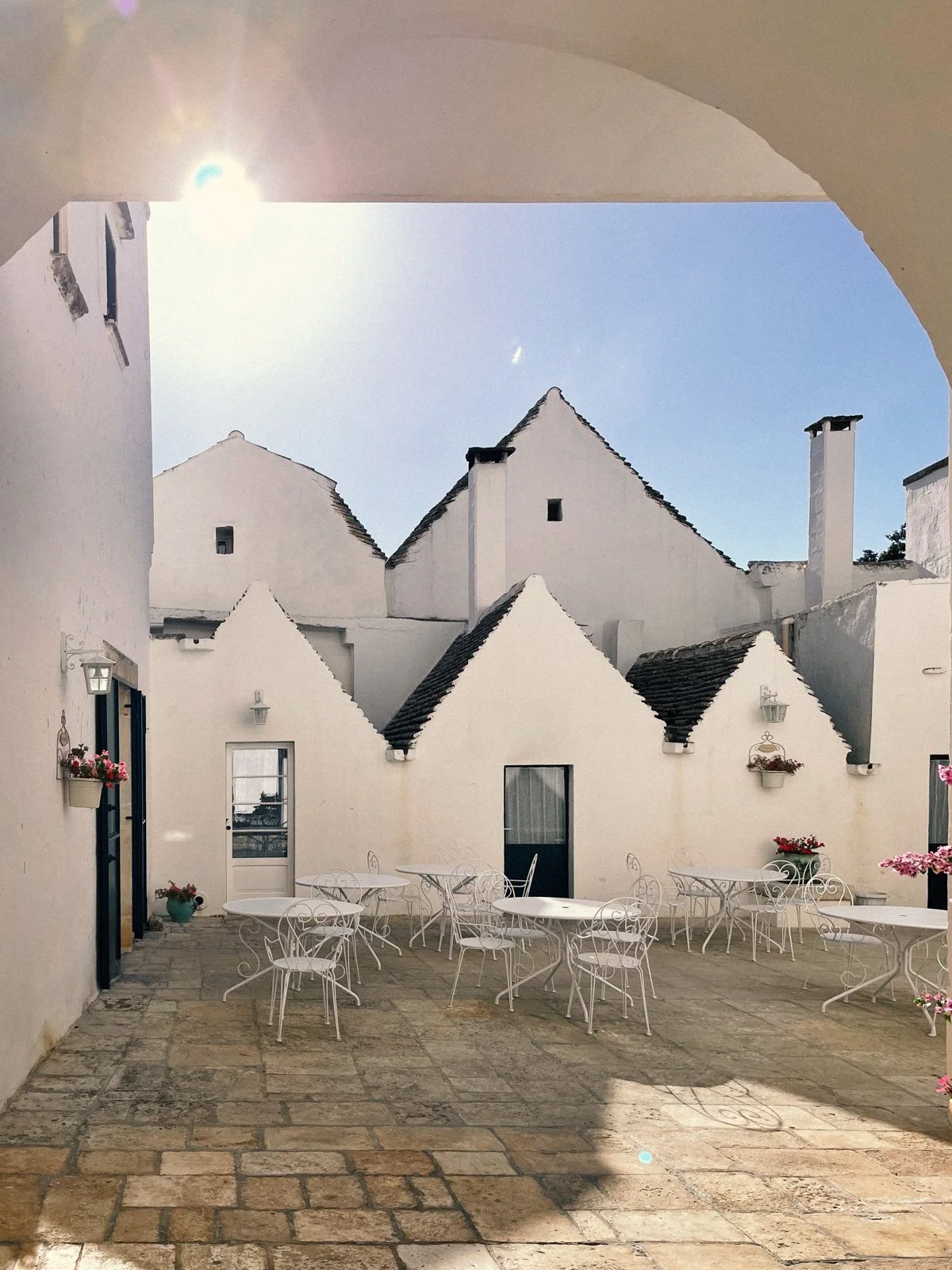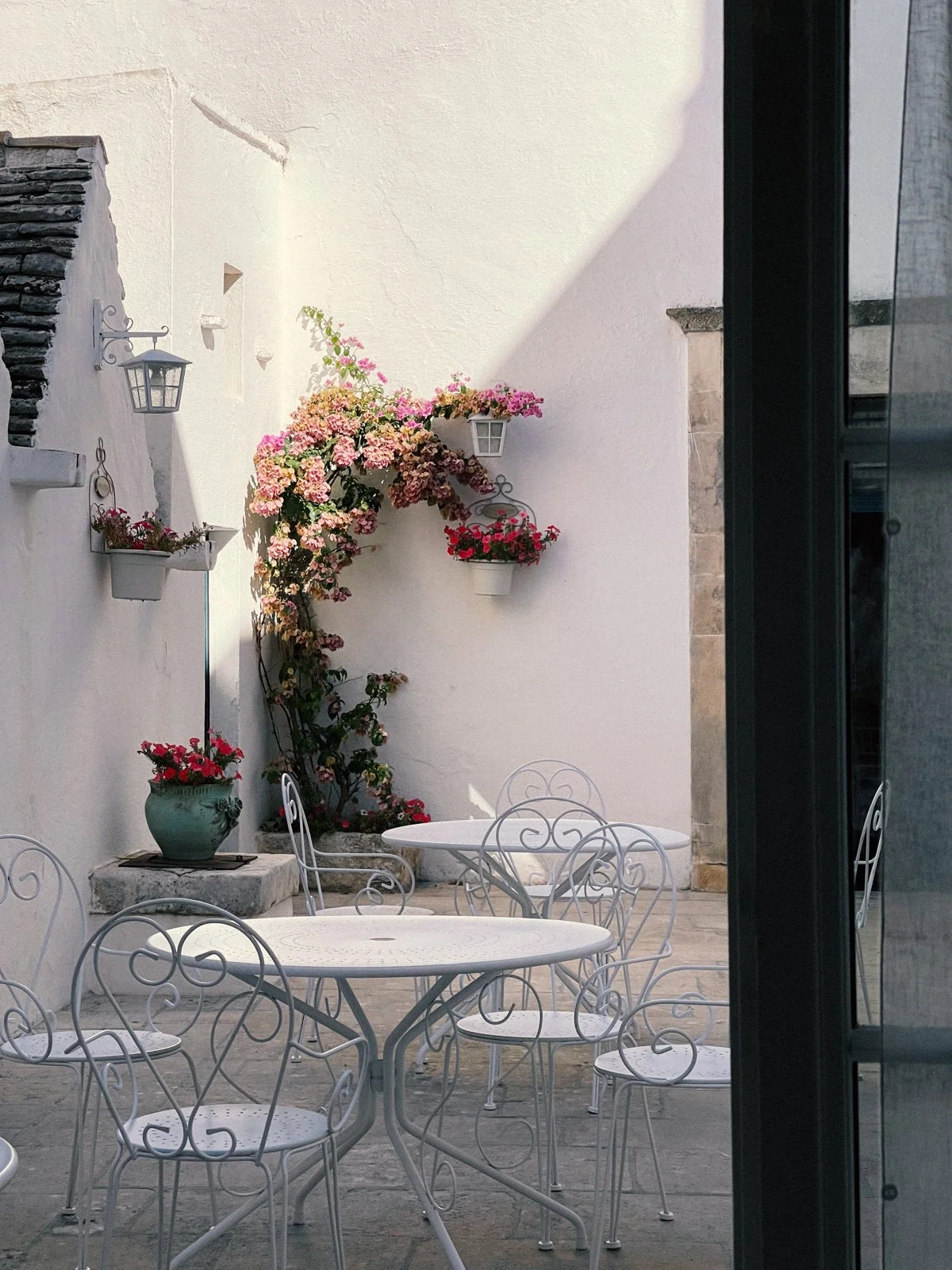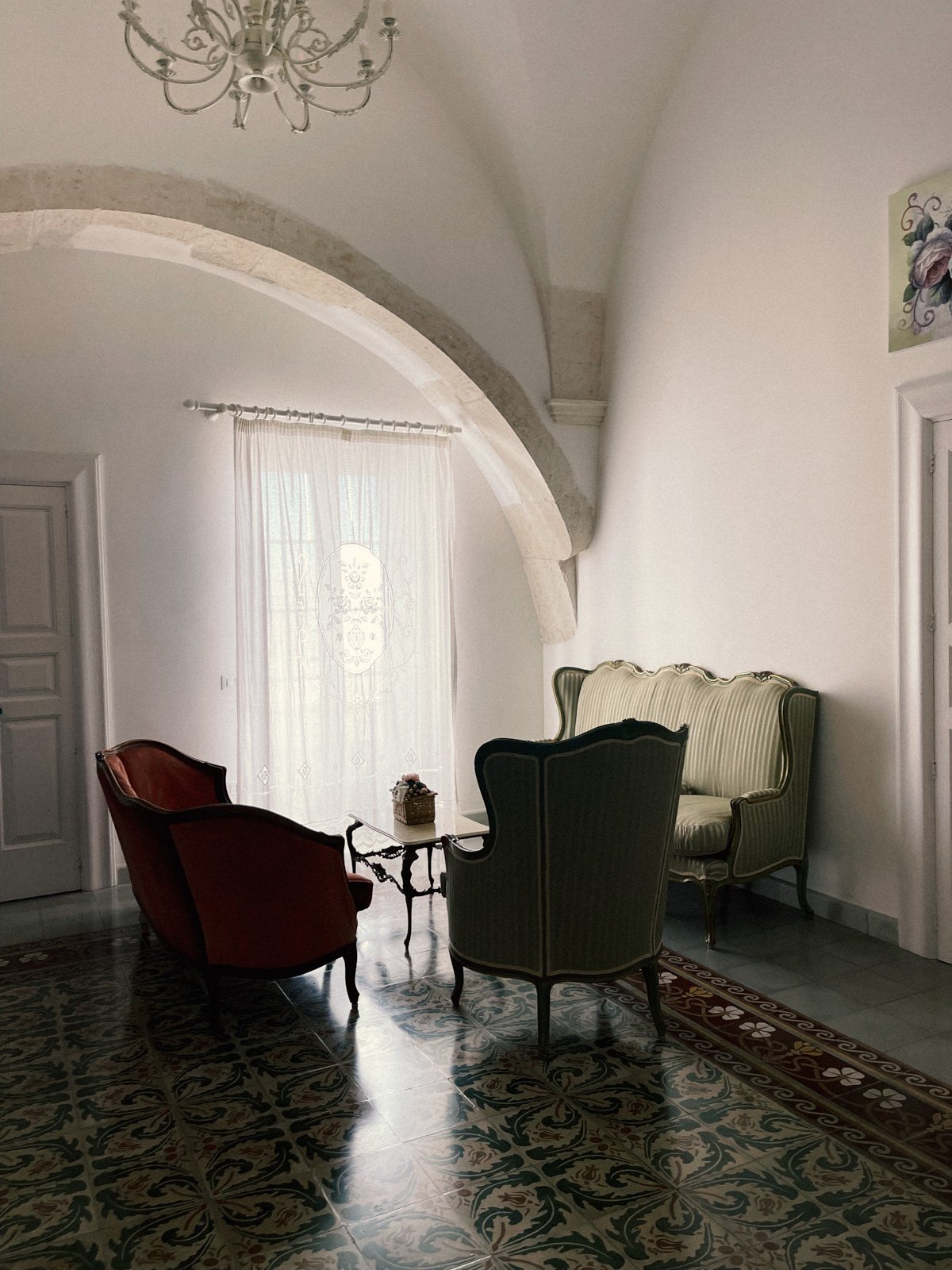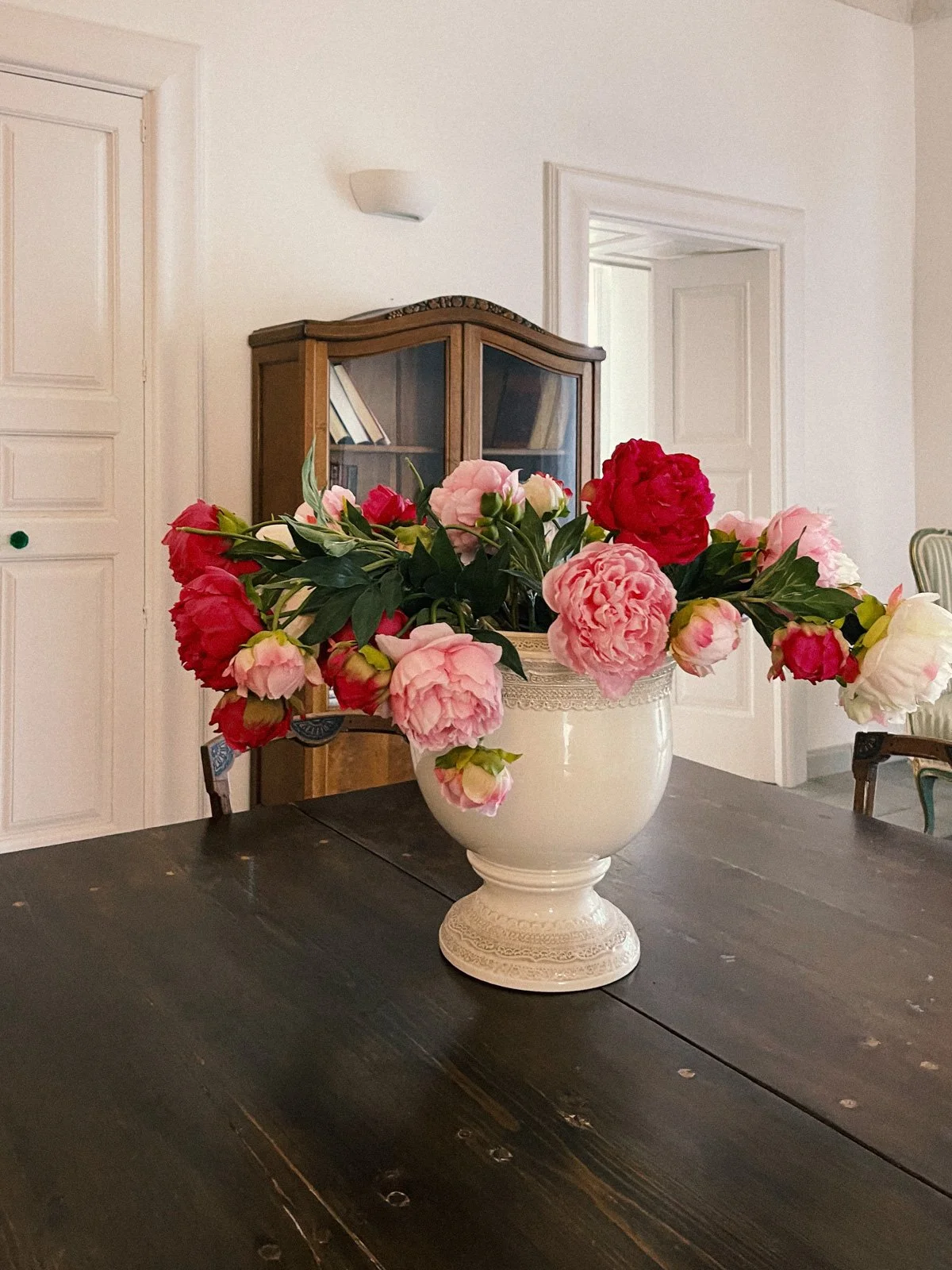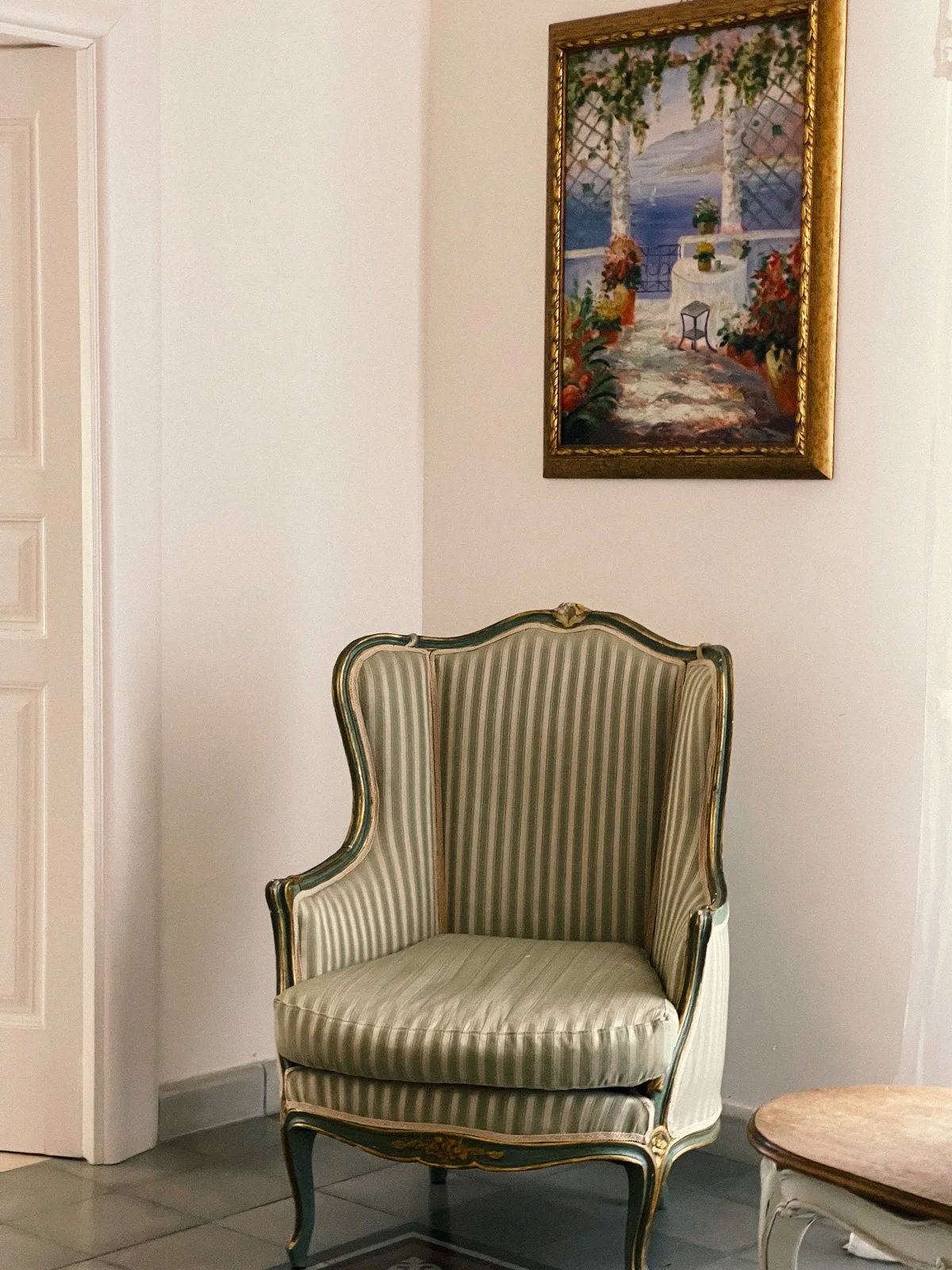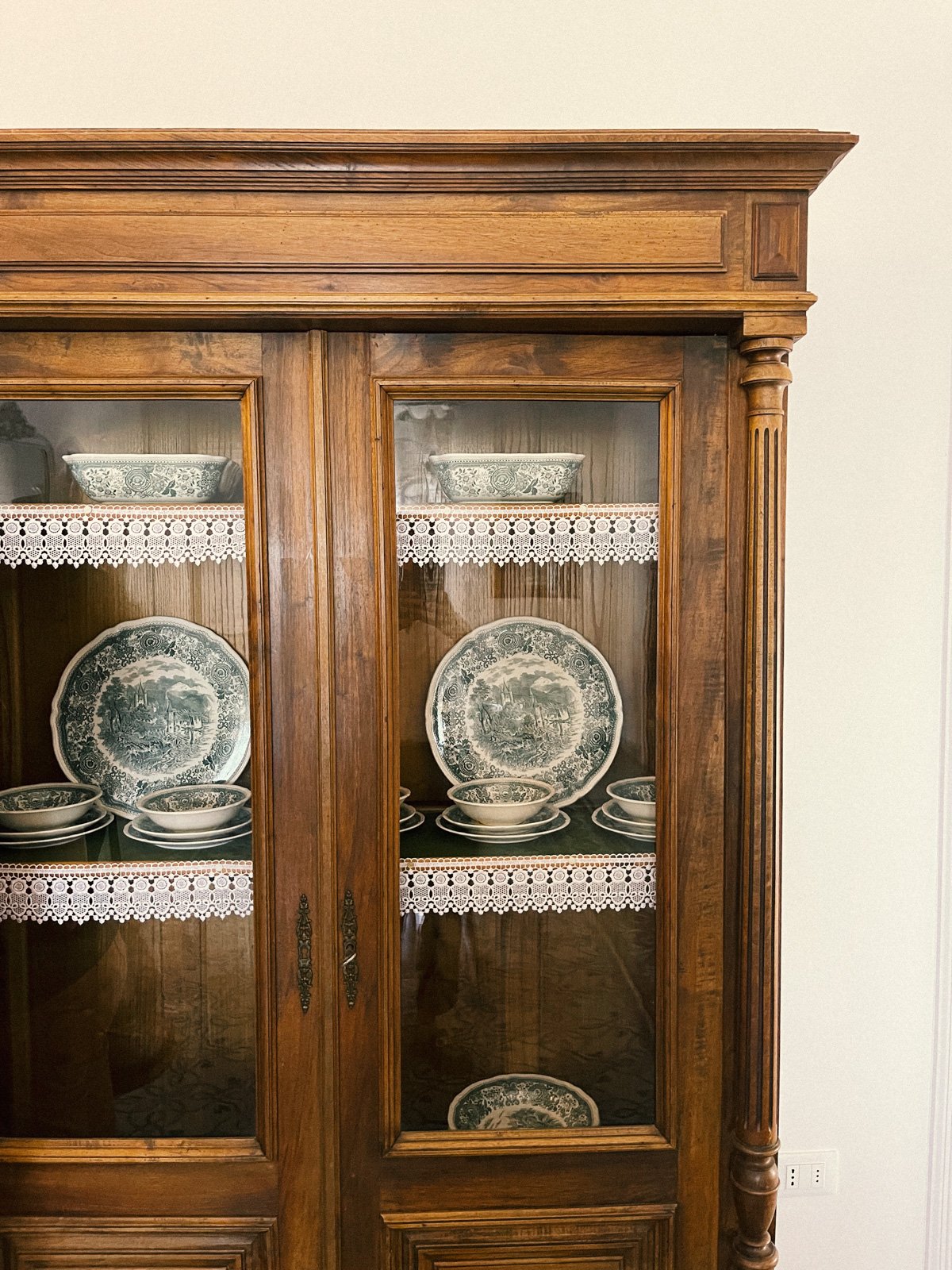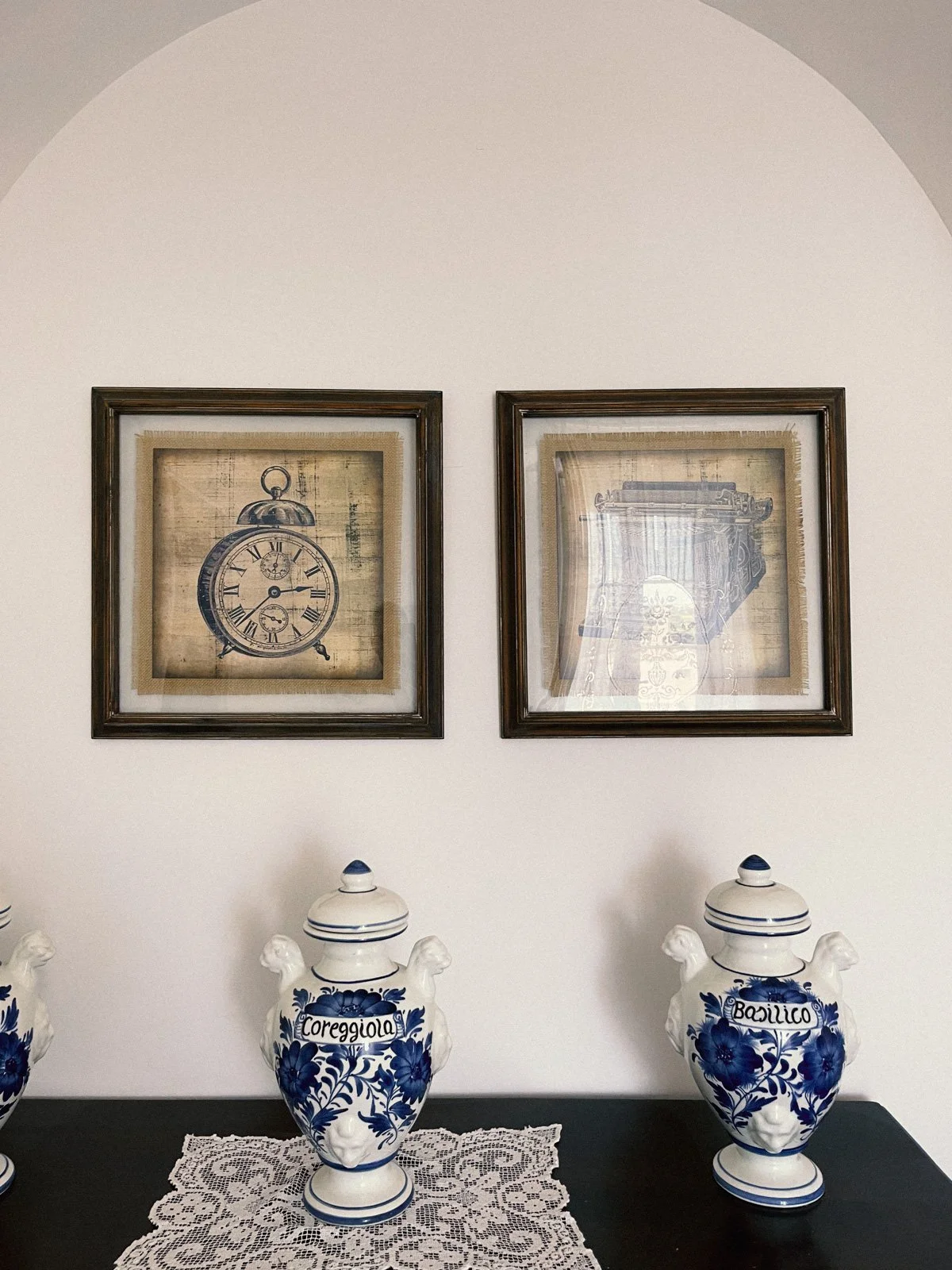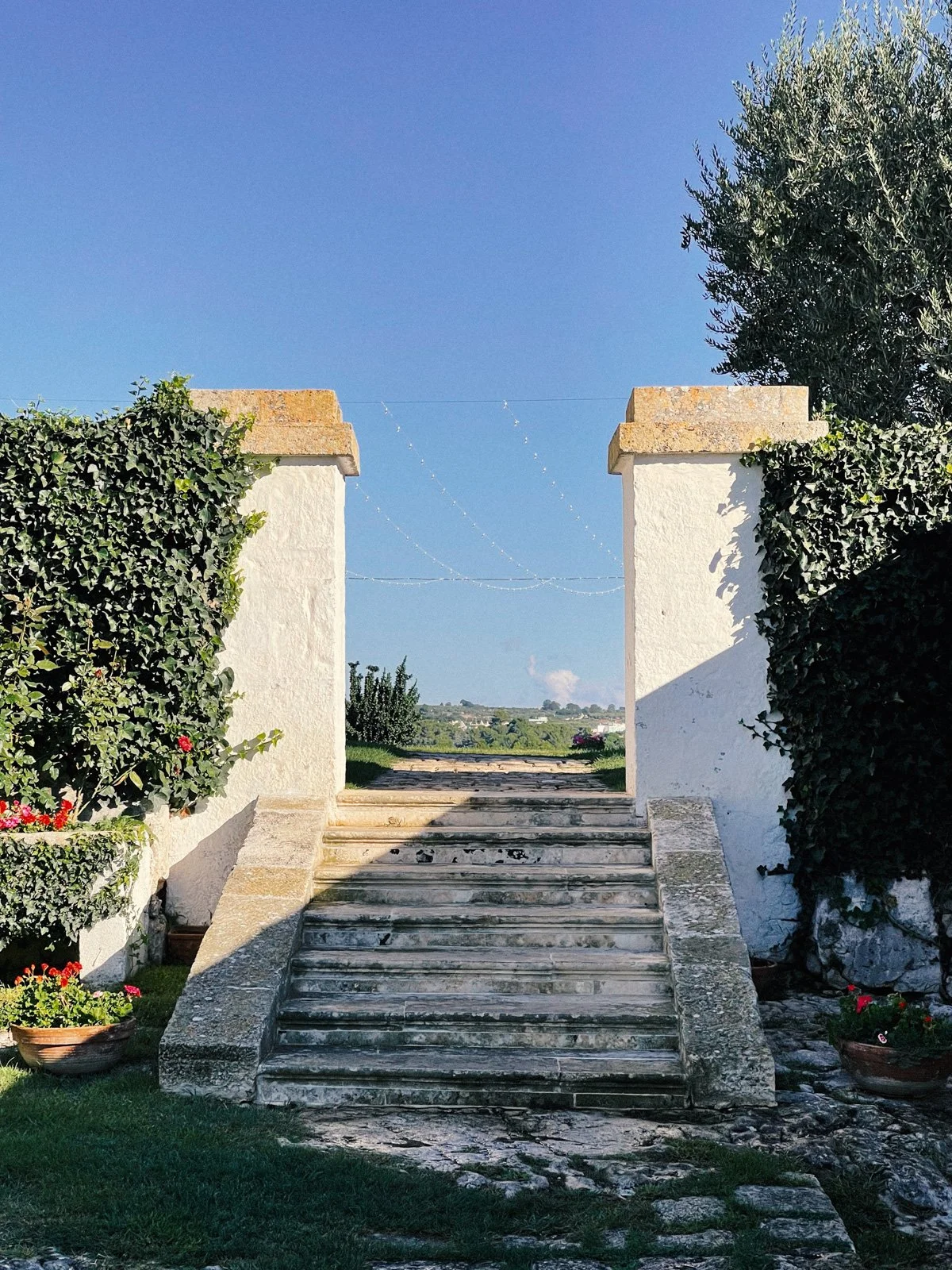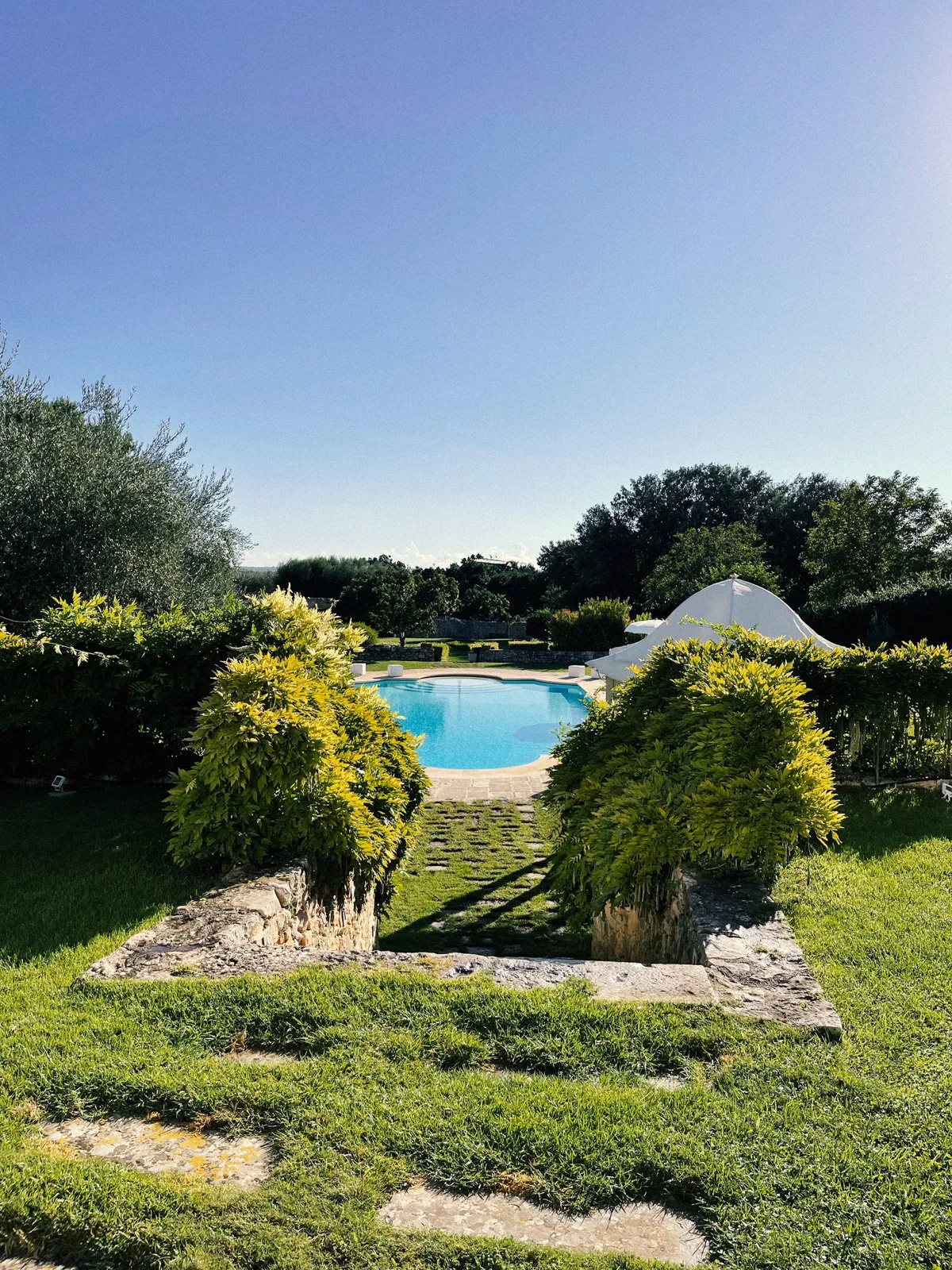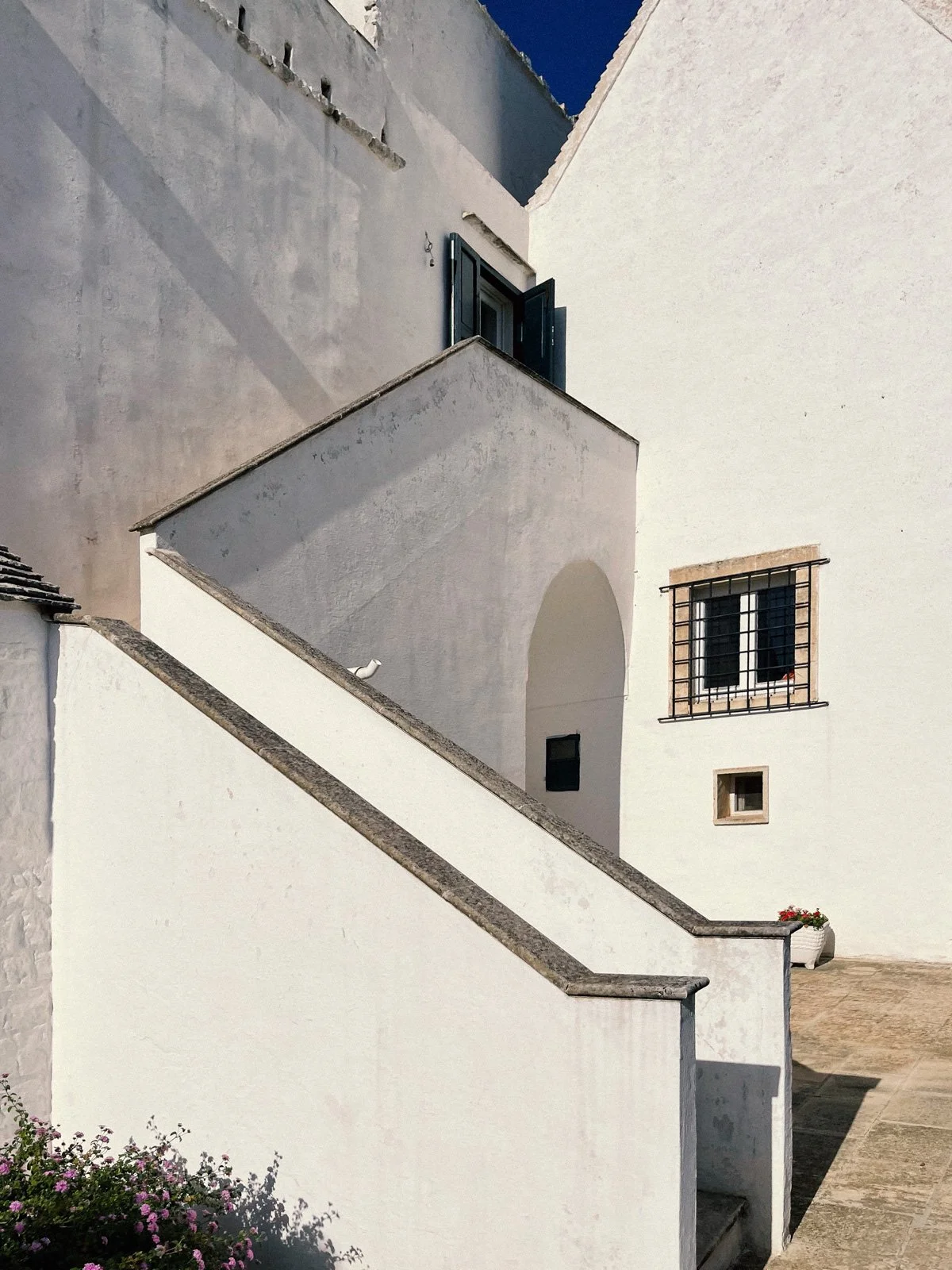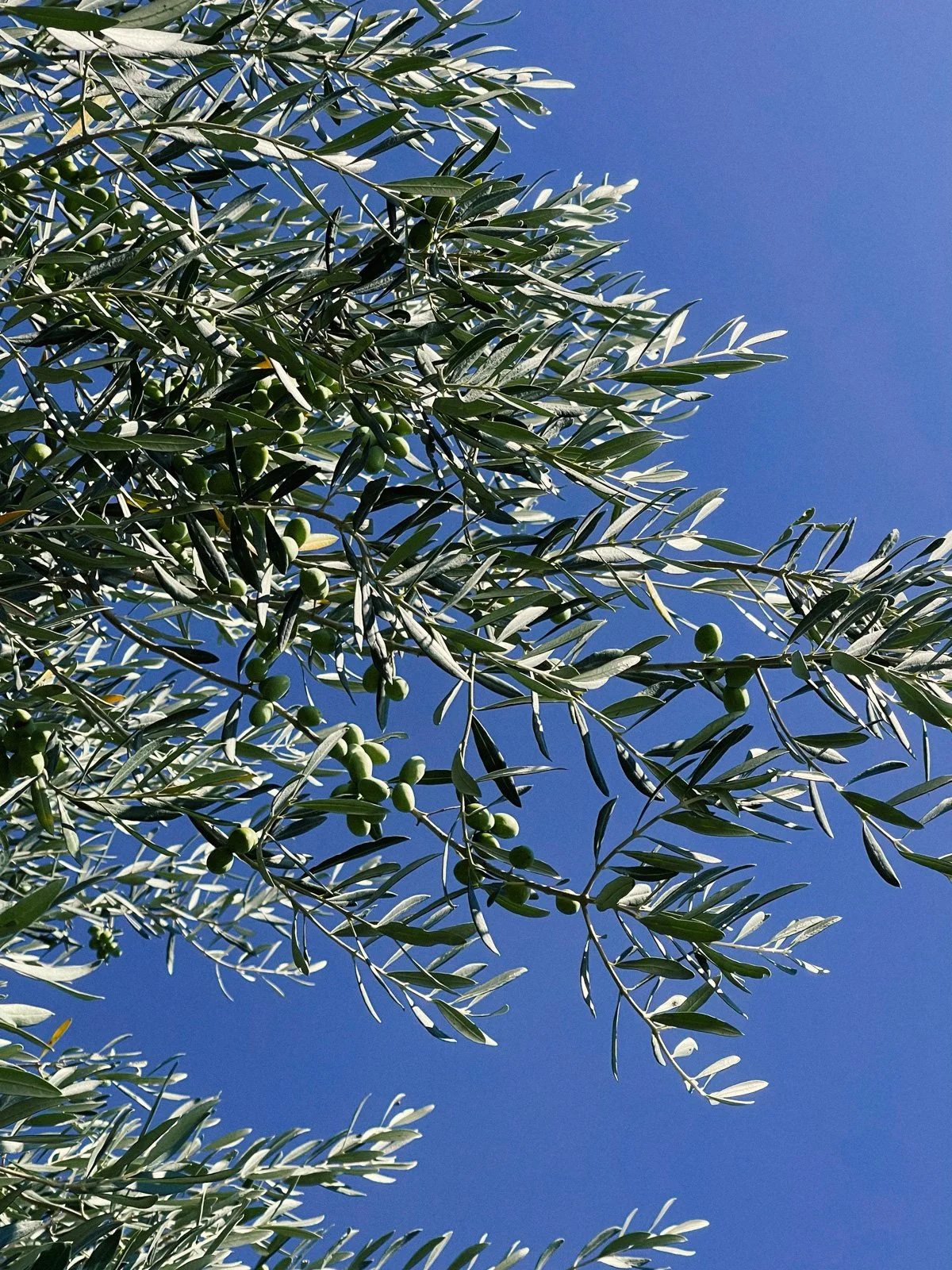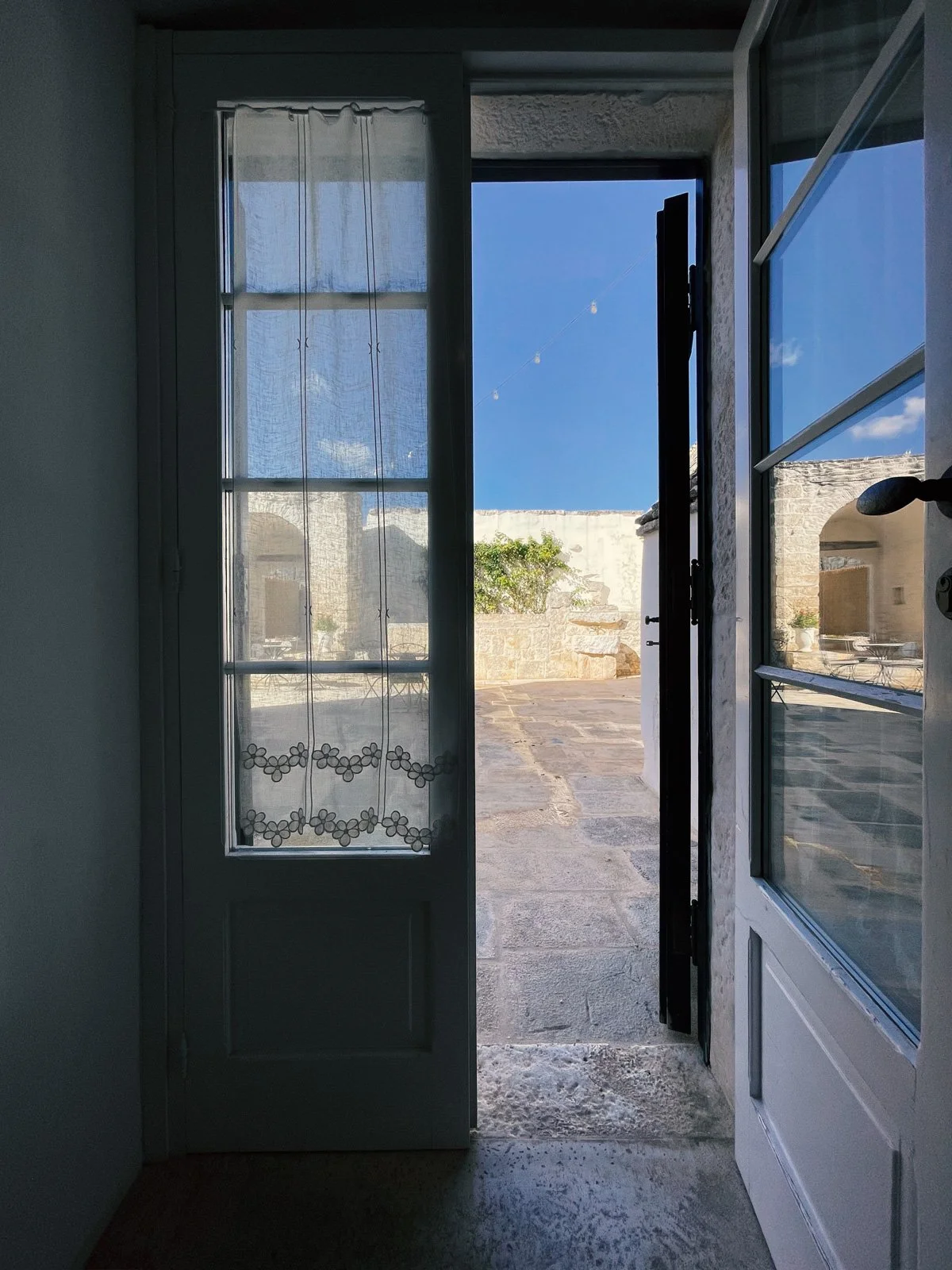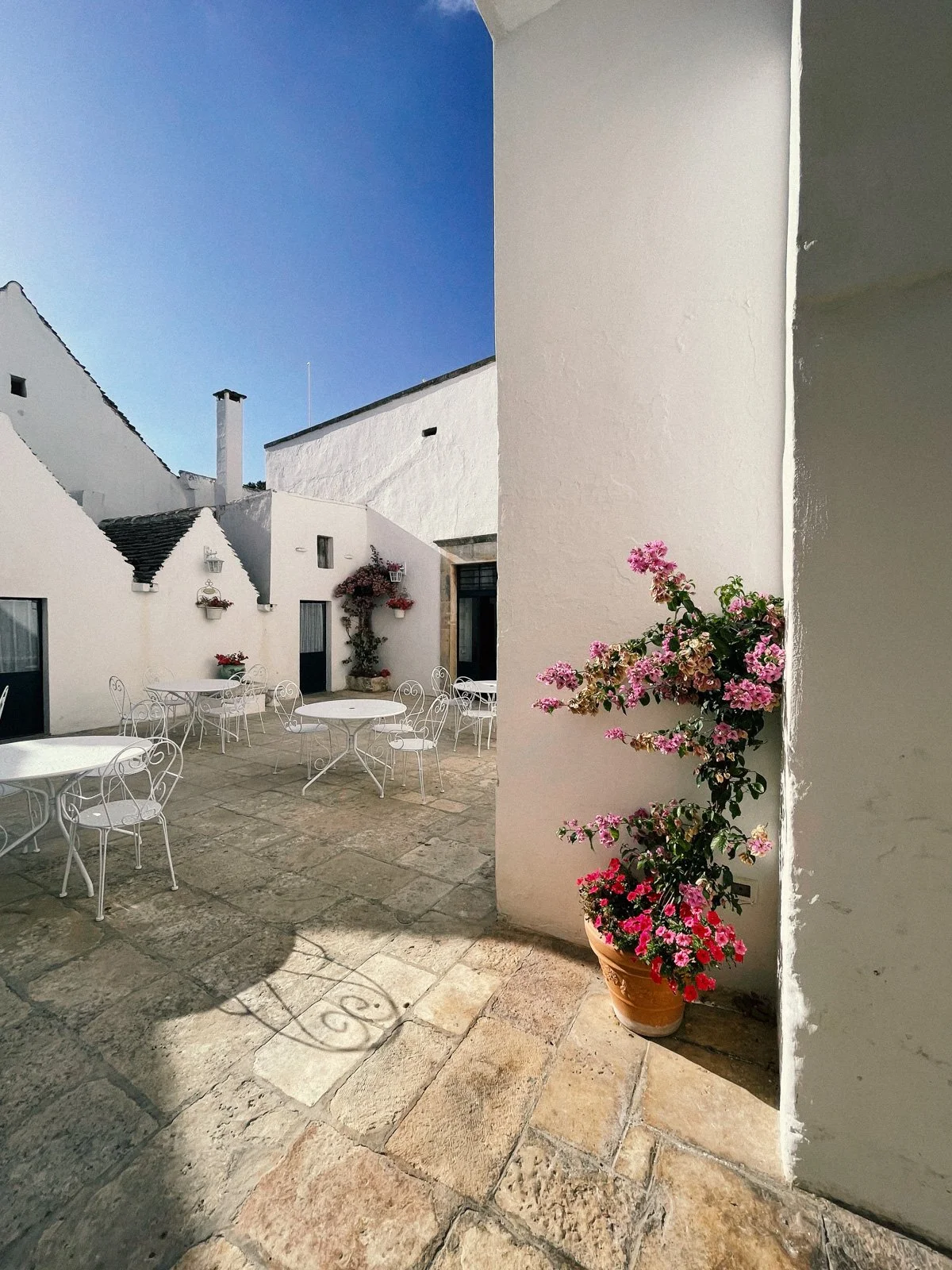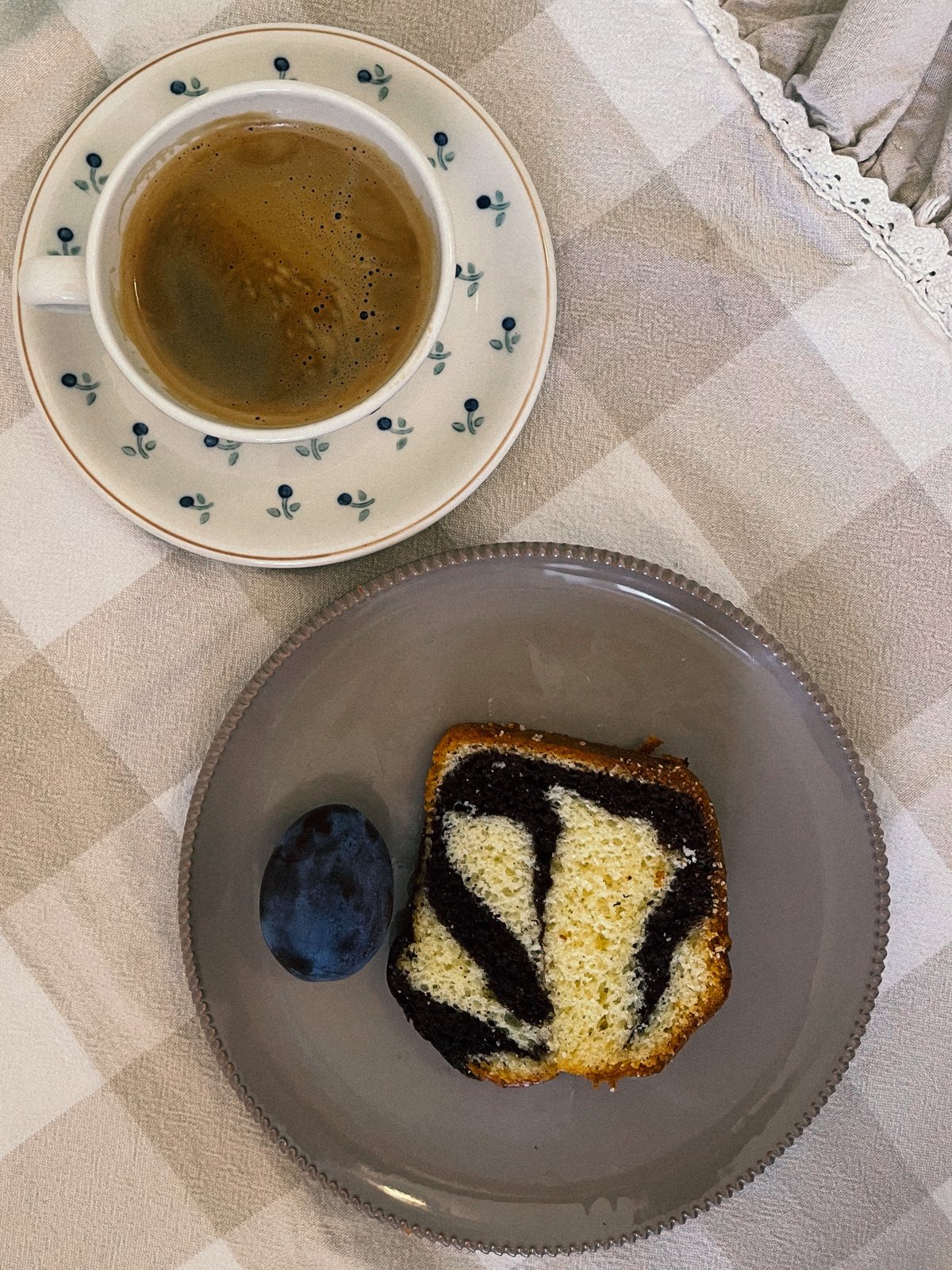Masseria Luco: white-stone serenity in the Valle d’Itria
The Why – Less spectacle, more sense
Luco is calm hospitality in a compact key: eight rooms means no fight for a lounger; country setting means a night sky worth learning; a chapel and quiet art make it feel grounded, not generic. If you come to Puglia for texture—stone underfoot, sun-bleached walls, food that tastes of place—you’ll find it here.
Arrival – A white road, a bell, and a first exhale
From Bari or Brindisi, roads narrow to lanes stitched with dry-stone walls. You pass orchards, small vineyards, trulli punctuation marks, then a gate gives way to a courtyard in pale stone. This is Masseria Luco: a small, historic bed & breakfast with eight rooms, seasonal outdoor pool, and a rooftop terrace, set a short drive from Alberobello’s famous trulli. The welcome is soft-spoken; the effect immediate.
Getting your bearings
Address-wise you’re in Martina Franca, in the heart of the Valle d’Itria—Trulli country, halfway between the Adriatic and Ionian. Expect a countryside hush, with the Baroque town centre and the Trulli of Alberobello about 12.5 km away for easy day jaunts.
Setting – Valle d’Itria, edited in limestone and sky
The Itria Valley is what happens when agriculture turns poetic: a quilt of olive trees, wheat stubble and vines; little lanes threading between whitewashed farms and conical-roof trulli. Luco sits in this tapestry with a quiet confidence—Via Noci, Martina Franca—close to the cultural trio of Locorotondo, Cisternino, and Alberobello if you crave daytime wander. Evenings bring a peach light over the courtyard; nights are inked with stars, mercifully few streetlamps for miles.
What you hear
Swifts at breakfast, pigeons in the rafters, the soft clink of cups on crockery. On still days, you catch the faint rustle of palms and the ping of a bicycle bell on the lane.
Hospitality – Small-scale, generous tempo
Masseria Luco runs on that golden balance: only eight rooms yet enough amenities to live slowly—saltwater pool, garden paths, a bar/lounge and a snack bar/deli for something simple when you’d rather stay put. Staff are local, multilingual (Italian, English and more), and geared to help with country-lane logistics—bike hire, taxis, tasting pointers. Continental breakfast (fresh pastries, fruit, juices) sets the day; afternoons are for books and swims.
A note on scale
This is a B&B-style masseria, not a resort—no theatrics, no tannoy. The payoff is attention: poolside towels appear when you do; a map is annotated for that evening’s festa in town.
The Interiors – White on white, stone on shade
Rooms sit behind thick walls with balcony or patio access, air-con, blackout, and premium bedding—all the quiet comforts. The look is archetypal Puglia: pale limewash, timber beams, ceramic lamps, textiles that read as hand-handled not showy. In a few rooms, conical volumes and curved corners nod to the valley’s trullo vernacular; public spaces keep to a similar palette—stone, wood, plenty of air.
Room types (at a glance)
Classic/Deluxe Rooms: restful bases with outdoor space for morning coffee.
Junior Suite: extra seating and a sofa-bed—good for small families.
Superior Suite: more square metres, bathrobes, and a better stage for sunset aperitivi.
All rooms get free Wi-Fi, minibar, in-room safe and a modern shower room (bidet, hairdryer, amenities).
The pool & terrace
The seasonal outdoor pool is saltwater-bright, framed by low planting and sun loungers; above, a rooftop terrace catches breezes and gives you the valley in long shot—exactly the sort of place a glass of local Verdeca makes sense.
History Beneath – From working farm to guest haven (with a chapel surprise)
Like many Puglian masserie, Luco grew through the 18th and 19th centuries, part of an agricultural economy that fortified farmsteads with chapels, courtyards and service wings. Today that history is legible in the plan—whitewashed ranges around a stone aia (threshing floor), a small chapel, and outbuildings re-tooled for guests. The estate’s own page places the masseria firmly in this period of rural prosperity.
The chapel & art
Luco’s little church is more than photogenic. The chapel—a “meeting place where history, art and faith intertwine”—includes frescoes attributed to an Apulian master, while local records and scholarship note a work titled “Assunzione” linked to Masseria Luco by the 18th-century painter Domenico Antonio Carella, whose hand is visible across Martina Franca. It’s a rare in-house art encounter for a small property—ask (politely) when it’s accessible.
Weddings & gatherings
The masseria’s bones lend themselves to celebration—gardens, chapel, terraces, a stone courtyard—and regional wedding registries list on-site civil ceremonies among possible setups. If you’re scouting for an intimate destination wedding, file Luco under “promising, small-scale”.
Atmosphere – The soundtrack is wind in citrus and a far dog bark
Days move between white shade and warm stone; the garden throws cool at siesta, while the pool keeps a steady hush of water and light. Evenings stitch together the scent of herbs, the spark of a barbecue somewhere down the lane, and laughter under a string of bulbs. It’s the kind of place that makes a chapter stretch, a conversation lengthen, a phone stay facedown.
When it sings
Blue-hour on the rooftop: rooftiles pinking, swallows cutting arcs, the first star above the cypresses. Simple, precise, memorable.
Mornings – Coffee, capocollo, and a plan made of small pleasures
Breakfast is a continental spread built around Italian pastries, fruit and juices; good coffee, of course. Then you choose your flavour of day: Alberobello’s trulli before the crowds; a Locorotondo tasting; a shady Cisternino lunch; or simply pool-book-nap-repeat. Staff can plot excursions to the valley’s headline towns should you want someone else to steer.

